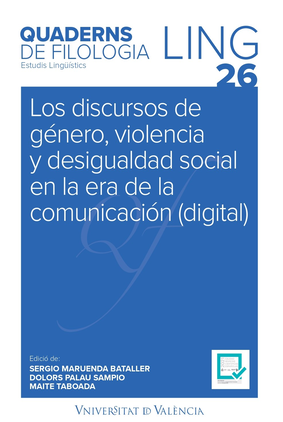Invertir la vulnerabilitat: el discurs en Twitter d'organitzacions neocón i Vox contra les persones LGTBI
DOI:
https://doi.org/10.7203/qf.0.21979Paraules clau:
LGTBI, organitzacions neocón, Vox, Twitter, igualtat. Resum
Resum
Les campanyes antigènere, comuns en els últims anys a Europa, compten amb llarg recorregut a Espanya de la mà d'organitzacions com a Fòrum Espanyol de la Família i Hazteoir.org, amb un discurs contra la igualtat LGTBI compartit pel partit ultradretà Vox. Aquesta investigació analitza els tuits publicats per aquests tres actors entorn de la població LGTBI durant els dos anys següents a l'entrada de Vox en les institucions. Els resultats assenyalen que el discurs dominant respon a una lògica defensiva que tracta de legitimar un missatge discriminador.
 Descàrregues
Descàrregues
Descàrregues
Publicades
Com citar
-
Resum1970
-
PDF (Español)1823
Número
Secció
Llicència
 Este obra está bajo una licencia de Creative Commons Reconocimiento-NoComercial-SinObraDerivada 4.0 Internacional.
Este obra está bajo una licencia de Creative Commons Reconocimiento-NoComercial-SinObraDerivada 4.0 Internacional.
Tots els documents inclosos a OJS són d'accés lliure i propietat dels seus autors i/o institucions editores, i per tant, qualsevol acte de reproducció, comercialització, comunicació pública o transformació total o parcial necessita el consentiment exprés i escrit d'aquests.
Authors who publish with this journal agree to the following terms:
- Authors retain copyright and grant the journal right of first publication with the work simultaneously licensed under a Creative Commons Attribution License that allows others to share the work with an acknowledgement of the work's authorship and initial publication in this journal.
- Authors are able to enter into separate, additional contractual arrangements for the non-exclusive distribution of the journal's published version of the work (e.g., post it to an institutional repository or publish it in a book), with an acknowledgement of its initial publication in this journal.
- Authors are permitted and encouraged to post their work online (e.g., in institutional repositories or on their website) prior to and during the submission process, as it can lead to productive exchanges, as well as earlier and greater citation of published work (See The Effect of Open Access).



